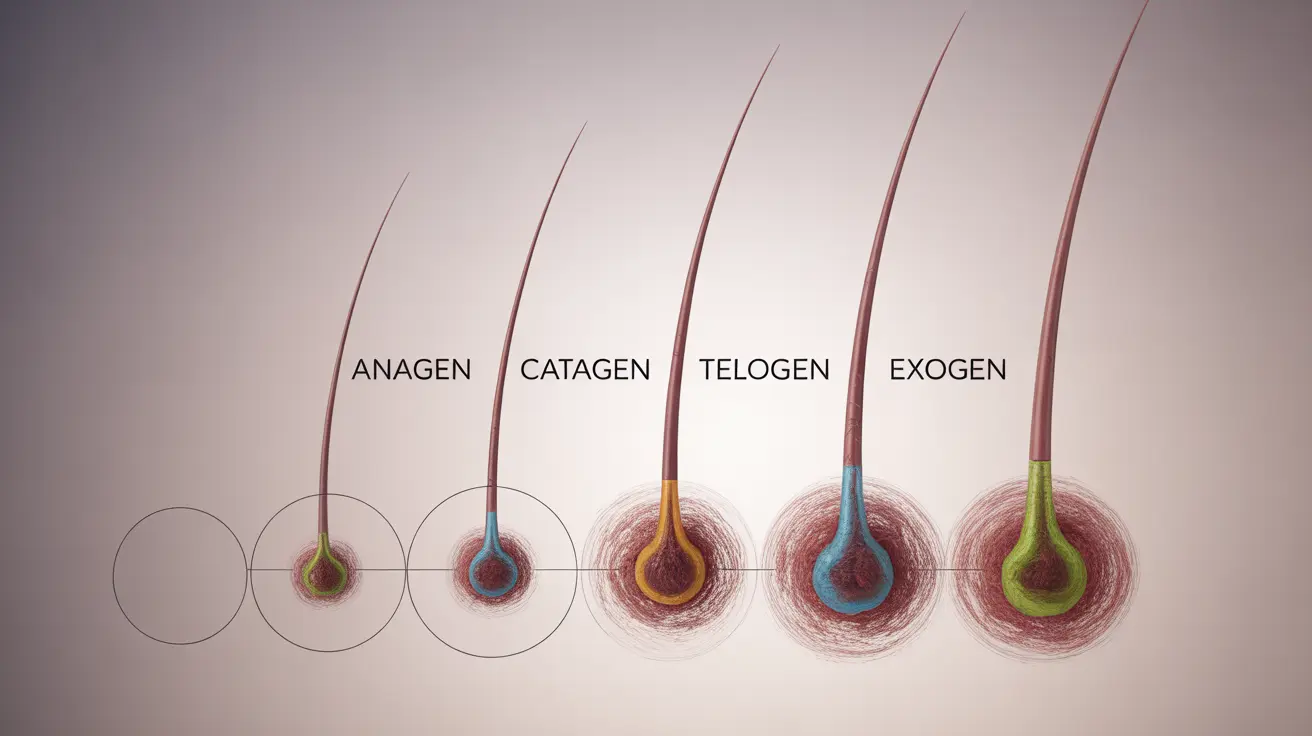If you've noticed your hair isn't growing as expected, you're not alone. Many people experience periods of slow or stunted hair growth, which can be concerning and frustrating. Understanding the underlying causes and available solutions can help you address this common problem effectively.
While normal hair grows about 1/2 inch per month on average, various factors can interrupt or slow down this natural process. Let's explore the reasons behind slow hair growth and discover practical solutions to help restore healthy hair growth.
Common Causes of Slow Hair Growth
Several factors can contribute to hair growth problems, ranging from lifestyle habits to medical conditions:
Nutritional Deficiencies
Your hair needs specific nutrients to grow properly. Common deficiencies that affect hair growth include:
- Iron
- Vitamin D
- Biotin
- Zinc
- Protein
Hormonal Imbalances
Changes in hormone levels can significantly impact hair growth patterns. This includes:
- Thyroid disorders
- Pregnancy and postpartum changes
- Polycystic ovary syndrome (PCOS)
- Androgens and DHT levels
Stress and Lifestyle Factors
Both physical and emotional stress can affect hair growth by:
- Disrupting the hair growth cycle
- Causing telogen effluvium
- Affecting nutrient absorption
- Impacting sleep quality
Hair Care Practices That May Be Affecting Growth
Sometimes, our hair care routine can unknowingly contribute to growth problems:
Damaging Hair Care Habits
- Over-processing with chemicals
- Excessive heat styling
- Tight hairstyles causing traction alopecia
- Aggressive brushing or combing
Product Build-up
Product residue can clog hair follicles and inhibit healthy growth. Regular clarifying treatments may be necessary to maintain optimal scalp health.
Solutions for Promoting Hair Growth
Dietary Changes
Improving your nutrition can significantly impact hair growth:
- Increase protein intake
- Consume more omega-3 fatty acids
- Add more fruits and vegetables
- Stay hydrated
Hair Care Modifications
Adopt these healthy hair practices:
- Use gentle, sulfate-free products
- Minimize heat styling
- Choose protective hairstyles
- Regular scalp massage
Medical Treatments
Professional treatments may include:
- Minoxidil applications
- Prescription medications
- PRP therapy
- Hair growth supplements
When to Seek Medical Help
Consult a healthcare provider if you experience:
- Sudden or excessive hair loss
- Patches of complete hair loss
- Scalp pain or irritation
- Other concerning symptoms
Frequently Asked Questions
What are the common reasons why my hair is not growing or growing slower than usual?
Common reasons include nutritional deficiencies, hormonal imbalances, stress, aggressive hair care practices, and certain medical conditions affecting the hair growth cycle.
Can stress or hormonal imbalances cause my hair to stop growing?
Yes, both stress and hormonal imbalances can significantly impact hair growth. Stress can push hair follicles into a resting phase, while hormonal changes can affect the growth cycle and hair thickness.
How do nutritional deficiencies affect hair growth and what nutrients are essential for healthy hair?
Nutritional deficiencies can slow or stop hair growth. Essential nutrients include protein, iron, biotin, zinc, and vitamins A, C, and D. These nutrients support follicle health and promote proper hair growth cycles.
What treatments or lifestyle changes can help promote hair growth and prevent hair loss?
Effective treatments include improving nutrition, gentle hair care practices, stress management, scalp massage, and medical treatments like minoxidil. Lifestyle changes such as better sleep and regular exercise can also help.
When should I see a doctor about sudden or patchy hair loss instead of slow hair growth?
Seek medical attention if you experience sudden hair loss, patchy baldness, scalp pain or irritation, or if hair loss is accompanied by other symptoms. These could indicate underlying medical conditions requiring professional treatment.




